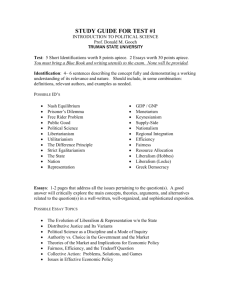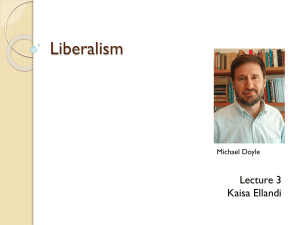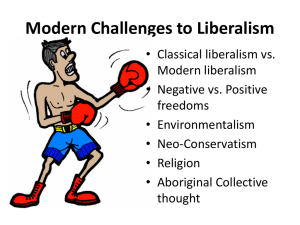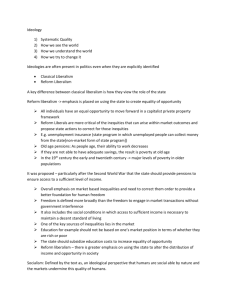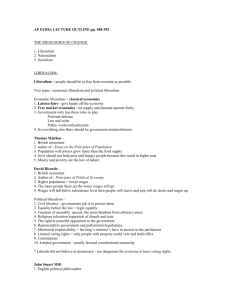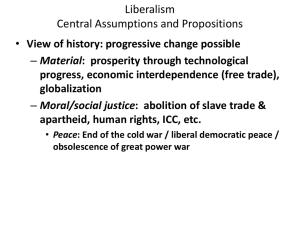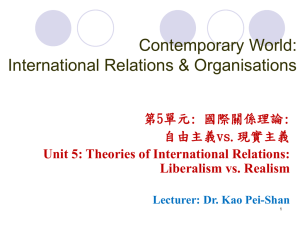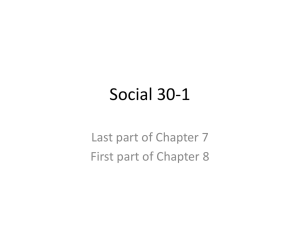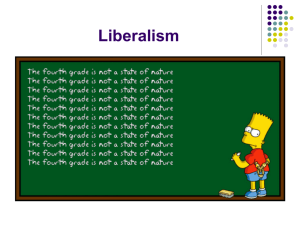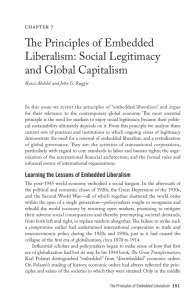Cultural Encounters & Exemptions: Liberalism & Multiculturalism
advertisement
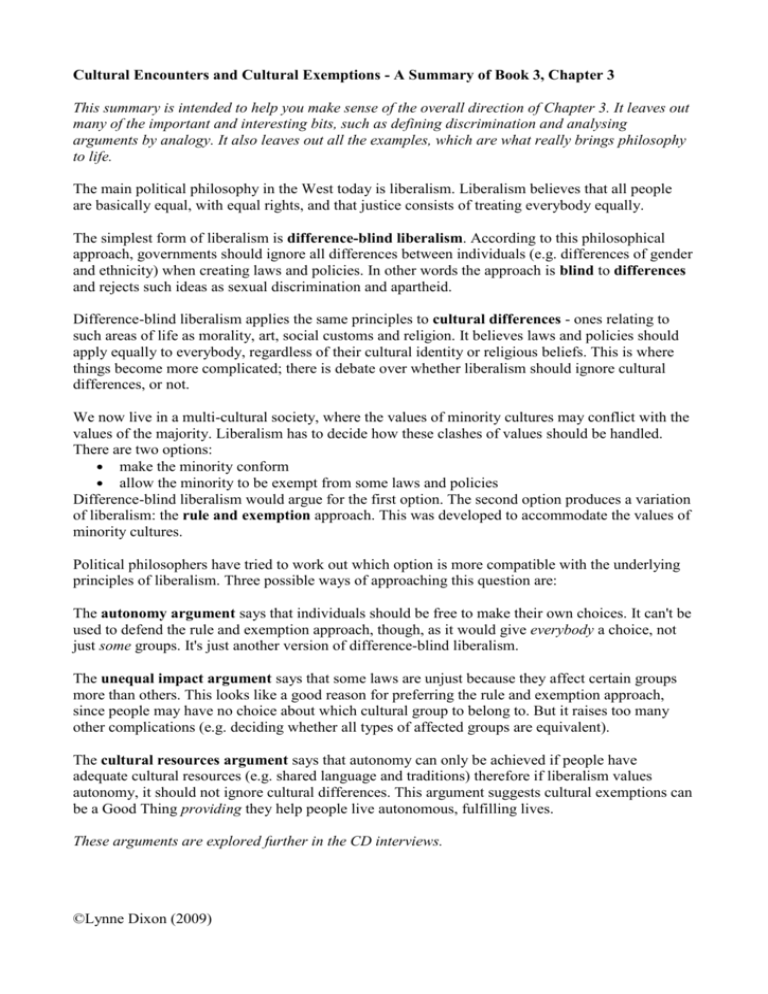
Cultural Encounters and Cultural Exemptions - A Summary of Book 3, Chapter 3 This summary is intended to help you make sense of the overall direction of Chapter 3. It leaves out many of the important and interesting bits, such as defining discrimination and analysing arguments by analogy. It also leaves out all the examples, which are what really brings philosophy to life. The main political philosophy in the West today is liberalism. Liberalism believes that all people are basically equal, with equal rights, and that justice consists of treating everybody equally. The simplest form of liberalism is difference-blind liberalism. According to this philosophical approach, governments should ignore all differences between individuals (e.g. differences of gender and ethnicity) when creating laws and policies. In other words the approach is blind to differences and rejects such ideas as sexual discrimination and apartheid. Difference-blind liberalism applies the same principles to cultural differences - ones relating to such areas of life as morality, art, social customs and religion. It believes laws and policies should apply equally to everybody, regardless of their cultural identity or religious beliefs. This is where things become more complicated; there is debate over whether liberalism should ignore cultural differences, or not. We now live in a multi-cultural society, where the values of minority cultures may conflict with the values of the majority. Liberalism has to decide how these clashes of values should be handled. There are two options: ● make the minority conform ● allow the minority to be exempt from some laws and policies Difference-blind liberalism would argue for the first option. The second option produces a variation of liberalism: the rule and exemption approach. This was developed to accommodate the values of minority cultures. Political philosophers have tried to work out which option is more compatible with the underlying principles of liberalism. Three possible ways of approaching this question are: The autonomy argument says that individuals should be free to make their own choices. It can't be used to defend the rule and exemption approach, though, as it would give everybody a choice, not just some groups. It's just another version of difference-blind liberalism. The unequal impact argument says that some laws are unjust because they affect certain groups more than others. This looks like a good reason for preferring the rule and exemption approach, since people may have no choice about which cultural group to belong to. But it raises too many other complications (e.g. deciding whether all types of affected groups are equivalent). The cultural resources argument says that autonomy can only be achieved if people have adequate cultural resources (e.g. shared language and traditions) therefore if liberalism values autonomy, it should not ignore cultural differences. This argument suggests cultural exemptions can be a Good Thing providing they help people live autonomous, fulfilling lives. These arguments are explored further in the CD interviews. ©Lynne Dixon (2009)
